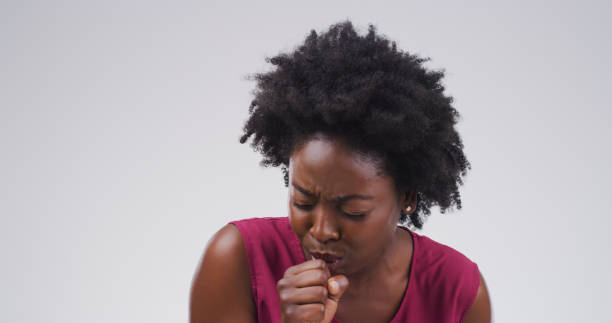What Are the Symptoms of Whooping Cough?
Whooping cough, also known as pertussis, is a highly contagious respiratory infection that can affect people of all ages. Caused by the bacterium Bordetella pertussis, whooping cough leads to severe coughing fits, which can be particularly dangerous for infants and older adults. This article explains the causes, symptoms, and complications of whooping cough, and provides guidance on when to seek medical treatment.
What Causes Whooping Cough?
Whooping cough is primarily spread through airborne droplets when an infected person coughs or sneezes. The Bordetella pertussis bacteria attach to the lining of the respiratory tract, releasing toxins that inflame the airways and cause severe coughing. Although vaccinations for pertussis are widely available, immunity can decrease over time, leaving vaccinated individuals susceptible to infection later in life.
Who Is Most at Risk?
While anyone can contract whooping cough, certain groups are more vulnerable, including:
- Infants under 12 months: Babies are at a higher risk because they may not have completed their vaccination series.
- Unvaccinated individuals: People who haven’t received the whooping cough vaccine are at a greater risk.
- People with weakened immune systems: Individuals with compromised immune health are more susceptible to severe infections.
- Pregnant women and adults over 65: These groups are also at a higher risk for complications from whooping cough.
What Are the Symptoms of Whooping Cough?
The symptoms of whooping cough typically develop in stages, and the infection can last for several weeks. Understanding the progression of symptoms can help with early detection and treatment.
Stage 1: Catarrhal Stage (1–2 Weeks)
In the first stage, symptoms are similar to those of the common cold, which often makes diagnosis difficult. Early signs of whooping cough include:
- Runny nose
- Mild fever (usually below 102°F)
- Mild, occasional cough
- Red, watery eyes
Because these symptoms are mild, many people might not realize they have whooping cough at this stage, allowing the infection to spread.
Stage 2: Paroxysmal Stage (1–6 Weeks)
As whooping cough progresses, the coughing becomes more intense and frequent. This stage is characterized by severe coughing fits that can last for several minutes, often resulting in a “whoop” sound as the person gasps for breath. Other symptoms during this stage include:
- Frequent and intense coughing fits: Coughs are usually more severe at night and may cause vomiting.
- High-pitched “whoop” sound: This sound is common in children but may not occur in adults.
- Fatigue: Coughing fits can be exhausting, leading to severe tiredness.
- Bluish tint around the mouth: This occurs due to lack of oxygen and is most common in infants.
In young children and infants, the cough may not produce the typical “whoop” sound but may instead cause them to stop breathing temporarily.
Stage 3: Convalescent Stage (Recovery Stage, 2–3 Weeks)
In the final stage, coughing fits gradually decrease, though occasional coughing may persist for weeks or even months. Recovery can take time, especially in severe cases, and coughing may recur with future respiratory infections.
When Should You Seek Medical Help?
If you or a loved one experiences prolonged, intense coughing fits or if an infant shows any signs of whooping cough, it is essential to consult a healthcare professional. Early diagnosis and treatment can help reduce symptoms and prevent further complications.
For quick access to medical advice, connect with licensed doctors on the Virtual Doctors App or download the Virtual Doctors Healthplus App on Google Play to book an appointment with qualified doctors.
Complications of Whooping Cough
Whooping cough can lead to serious complications, especially in infants, who are more vulnerable to severe respiratory issues. Possible complications include:
- Pneumonia
- Seizures
- Dehydration
- Weight loss from vomiting
In severe cases, whooping cough can lead to brain damage or even be fatal in young infants. Older adults with other health issues may also experience more severe complications.
How Is Whooping Cough Treated?
Treatment typically involves antibiotics, which can help reduce the severity of symptoms and prevent the spread of infection. The earlier treatment begins, the better the outcomes. In severe cases, especially in infants, hospitalization may be necessary to monitor breathing and provide supportive care.
Preventing Whooping Cough
Preventing whooping cough is possible through vaccination. The DTaP vaccine protects children from diphtheria, tetanus, and pertussis, and booster shots (Tdap) are recommended for adolescents and adults. Pregnant women should also receive the Tdap vaccine during each pregnancy to protect newborns from whooping cough.
Additional preventive measures include:
- Regular hand washing to reduce the spread of bacteria
- Avoiding close contact with infected individuals
- Practicing good respiratory hygiene (covering mouth and nose when sneezing or coughing)
Whooping cough is a highly contagious respiratory illness, but it can be prevented through vaccination and good hygiene practices. Recognizing symptoms early is essential for timely treatment and to avoid complications. If you suspect whooping cough, it’s crucial to reach out to a healthcare provider for proper care. For convenient access to medical professionals, register on the Virtual Doctors App or download the Virtual Doctors Healthplus App on Google Play to book an appointment with qualified doctors.



